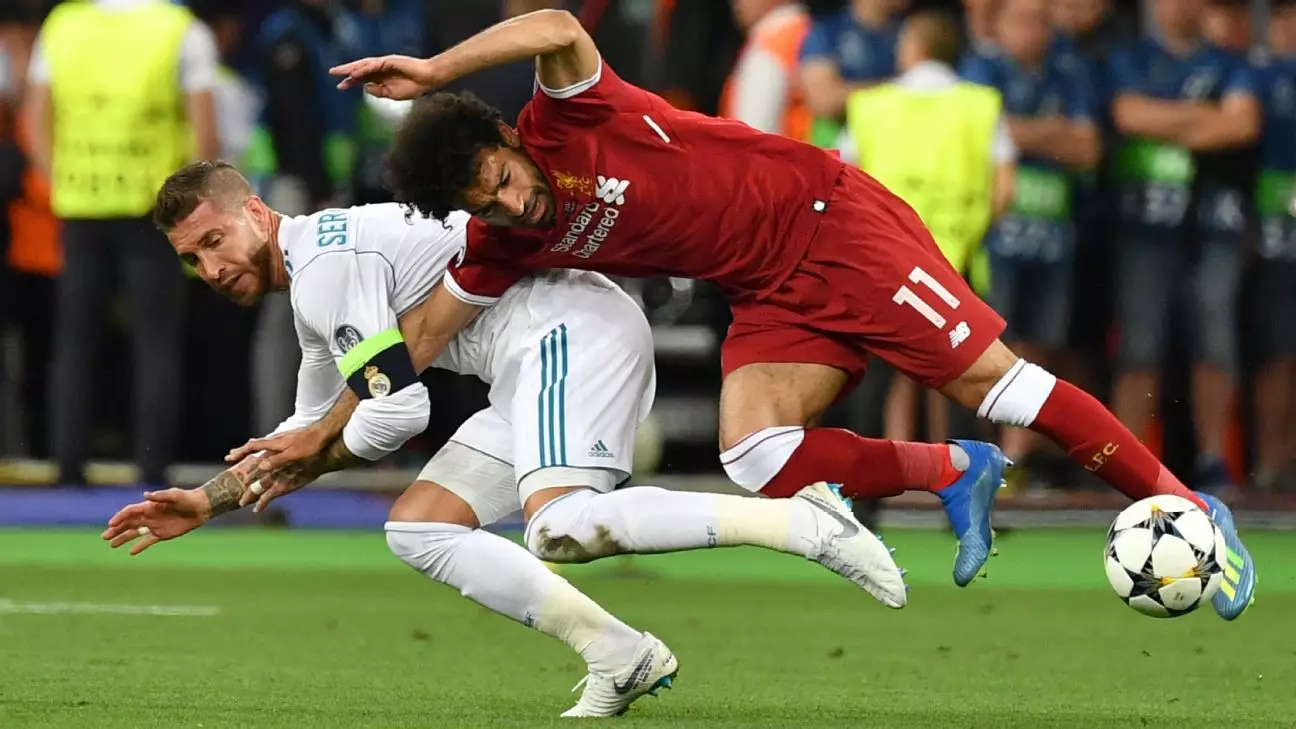The world of football is rife with historical moments that shape the narratives surrounding players and their legacies. One such moment, etched in the memories of fans and analysts alike, is the clash between Sergio Ramos and Mohamed Salah during the 2018 Champions League final. As Liverpool’s talisman was taken off the field due to a shoulder injury, Real Madrid emerged victorious, leaving behind a cloud of controversy. Former Liverpool manager Jürgen Klopp recently revisited this moment, expressing his critical stance on Ramos during a conversation with Toni Kroos on the podcast Einfach mal Lupen.
In the podcast, Klopp’s view on Ramos was anything but flattering. He questioned the notion of Ramos being a “good guy,” suggesting that the actions taken during that fateful match were not reflective of a sportsmanlike character. Klopp articulated his disbelief over the mentality that seems to celebrate such aggressive tactics, indicating that he could never associate with players who resort to such behavior. His statements reveal a broader sense of ethics in football that values sportsmanship over winning at all costs.
Furthermore, Klopp asserted that he had never coached players who engaged in such conduct, emphasizing that he would actively work to ensure they didn’t remain part of his squad. This statement elevates the conversation from a mere critique of Ramos to an exploration of football ethics and the responsibilities of coaches in cultivating their players’ attitudes. Klopp’s viewpoint opens up a discussion about the line between competitive aggression and unsportsmanlike conduct.
On the other side of the discourse, Toni Kroos defended his former Real Madrid teammate by vouching for Ramos as a “very good teammate.” This contradiction highlights the subjective nature of sports narratives; what one manager deems unethical behavior, another player might see as part of the competitive spirit of football. Kroos’ remarks inject a sense of balance into the discussion, suggesting that while Ramos’ actions might have been controversial, they did not overshadow his qualities as a team player.
This stark contrast reflects the duality in professional sports: the personal feelings held by those on the sidelines, compared to the camaraderie shared among teammates. It raises further questions about how conflicts on the pitch can affect relationships off of it.
The exchange between Klopp and Kroos serves as a microcosm of the larger conversation about sportsmanship in football. Whether one agrees with Klopp’s assessment of Ramos or Kroos’ defense of him, it’s clear that the discussions surrounding ethics in football are complex and multifaceted. Klopp’s criticisms challenge us to consider what we value in players beyond their skill—namely their integrity and their approach to the game. In an era where player behavior is constantly under scrutiny, the debate on where to draw the line between aggression and good sportsmanship is more relevant than ever.

